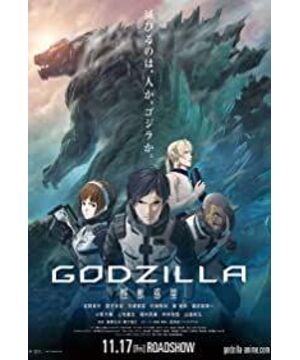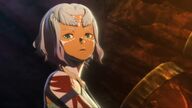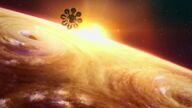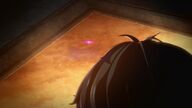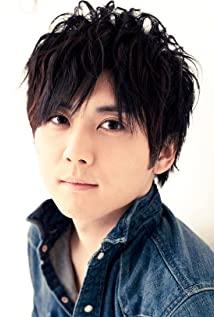Godzilla, the mountain monster is back.
Not the live-action movie of Goth 2: King of the Monsters. This is a 3D animation theater invested by Netflix and written by Xu Yuanxuan, the warrior of love. It is also joined by well-known voice actors such as Hanazawa Coriander and Miyano Mamoru. By production standards, the film is well-made. Although it is a little weak in the final battle, the overall painting style is pleasant, the logic is quite self-consistent, the texture of Godzilla is amazing, and although there are lessons from the plot, it is also innovative, and it is much better than many brainless garbage similar films. . But as a disaster movie, monster movie, or sci-fi movie, there are things that don't quite work out. This is not due to the omissions and fallacies of the plot, but the confusion of the audience's senses. In a word, it is:
At least visually, Godzilla is less scary.
Not so cool anymore.
1. Godzilla's incongruous combination with space civilization
Returning to Earth after space voyage is the innovation of the film compared to the traditional Godzilla, but it also brings great problems: from a three-dimensional perspective in space, the huge Godzilla becomes a small one. Well, it doesn't seem so scary anymore.
Horror films have a common feature, that is, the "no way out" of the protagonist team. When the murder in the secret room occurs, everyone will be trapped in the wilderness blocked by heavy snow, unable to communicate with the outside world, unable to communicate with the phone; Exit; the same aliens, zombies and other monsters are also scary in the blocked spaceships, research institutes and underground lair. These factors all create a sense of fear that it is difficult to escape the threat by restricting the protagonist's activities.
The monster film is different from the above methods, usually by increasing the destruction and action range of the monster to increase the sense of threat, rather than limiting the protagonist's action range. It took us half a day to escape from one end of the city to the other, but Godzilla opened his mouth and breathed an atom and the whole city was gone. As long as human beings are still on land, Godzilla is an unavoidable fear, making people nowhere to go even if they are in the wilderness, as if they were trapped in a closed haunted house.
But if humans have mastered mature interstellar navigation technology, they can use orbital units and spacecraft, and even easily interstellar travel? The Godzilla threat is a bit outdated. Godzilla can't fly, can't develop a spaceship, and what's worse, compare it with the vast and boundless universe, this threat instantly loses its sensory impact, even if it is increased from fifty meters to three hundred meters, or even 330,000 meters. What is really scary is the fear of not being able to protect yourself when you find out that you are standing on the top floor of Jin Mao Daxia but still looking at Godzilla, but from the people in the orbiting spaceship, Godzilla is a cow or a mountain, 500. Tons or 50,000 tons, it’s just a simple number. Anyway, looking at it with the naked eye, it’s just a point-like object that doesn’t even account for a single pixel.
Therefore, even if the screenwriter forcibly created a "secret room" on the surface by destroying the landing ship and interrupting communication, which is logically flawless, this scene also lost a lot of psychological horror. Godzilla is threatening species that are on land and can only move in two dimensions. For cosmic civilization, even if it is 10,000 times stronger, that trembling sense of threat is no longer there.
Another side effect is that it doesn't make the audience happy. In addition to destroying cities (especially landmarks), the focus of monster films is monster fights. It is a pity that the plot of this film is too long, and the above elements are not available: Godzilla, who is far away from high-rise buildings, lacks a powerful target, and there are no enemy monsters to fight against, so he can only blow up mountains and earth, without his predecessors to make refreshing visual effects.
2. Increased freedom and lack of tension caused by sci-fi
It can be seen that the film seems to want to portray the protagonist as an activist who rebels against fate, similar to the protagonist Alan in Attack on Titan. But this shaping faces a big problem, which is the lack of tension and excess freedom: in the giant drama, the horror of giants is not only because of the strength of giants, but also because of human weakness and no choice. Trapped within the walls, with no other way out, using early-industrial-revolution-style weapons, the infinitely regenerating giant is completely helpless. But with the advancement of human technology, the threat of giants has been eliminated, and the whole film has entered the tone of politics and drama.
The film also has the same problem. For ordinary residents living in the city, Godzilla is powerful and terrible. But for the starship civilization that has entered the stage of cosmonautics with the blessing of alien technology, it seems a bit unacceptable to be afraid of an earth monster. Just as it is difficult for tigers to become the protagonists of monster films in modern society, because the development of human productivity has made it difficult to regard tigers as a threat, the most suitable stage for Godzilla to be active is the end of the last century, the end of the industrial age and the arrival of the tide of the information age. At the beginning, because of its huge personality, indestructible, and atomic bomb-like destructive power, its sense of threat was greatly reduced before the civilization capable of interstellar travel: the range of human activities can be measured in light-years, and Godzilla is the size of Godzilla. No matter how big it is, it can’t be bigger than the earth, and the earth is just a little dust in the infinite universe; similarly, no matter how big the monster destroys, it may not be able to compare with the energy of a human interstellar shuttle, even if Godzilla’s mutation level is higher, mastering it. With the annihilation of positive and negative matter and quantum shock waves, he is only a native of the earth who eats soil, and cannot go to starburst civilizations in other galaxies.
Science fiction, especially the theme of spaceflight, can expand people's minds and visions, but this degree of freedom has the opposite effect on shaping terrestrial monsters like Godzilla. In order to satisfy the two settings of interstellar voyage + weak human combat power at the same time, the screenwriter painstakingly added alien elements, as well as the setting of being able to move back to Earth but unable to go to other galaxies, trying to create a claustrophobic and hostile cosmic environment . But the mere existence of the possibility of space travel has already made people feel the inevitability of returning to Earth and fighting Godzilla decisively, thus weakening the tension of the plot.
3. The rough game of life and death
From the beginning, the protagonist has shown a strong will to not kill Godzilla. But from the plot point of view, his motivation seems to be more out of personal hatred, and lack of inevitability and lack of reasons for support. There is a slight jump in the plot from the discovery of Godzilla to the decision to destroy Godzilla, and the transition is not natural enough.
Do human beings have to overcome difficulties? Of course not. It's like there is a mountain blocking the way, the best way is to move, not to dig a mountain. Only when there is an urgent threat to survival or to ensure that the benefits outweigh the risks, a full-scale struggle is required. And if this process conflicts with the interests of other species, it will enter the game link. There are three choices made:
One is to think of it as a zero-sum game. In a zero-sum game, the interests of the two sides are completely conflicting. If two people share a piece of cake, the bigger the cake you get, the less I get. So the best option is for me to kill you and take all your cake. This is the strategy that the male protagonist adopts: if you don't kill Godzilla and grab the resources occupied by Godzilla, human beings will not be able to survive, and Godzilla seems to have the same point of view.
The second is to play a positive-sum game. It is possible that the interests of both parties are consistent. For example, if two people work together in a division of labor, one grows crops and the other grinds flour to make cakes. It may be more efficient than two people who grow crops and grind flour separately and produce larger cakes. Therefore, although the process of dividing the pie is also important, through cooperation, the pie can be made bigger together. For this reason, the other party cannot be easily eliminated, but must be carefully weighed.
The third situation is to avoid the game and choose other ecological niches. Godzilla is invincible on earth, don't compete with it, just as startups shouldn't try to make an operating system that surpasses windows, this is not a cowardly, but a wise decision. Building bases on the moon or even Mars and its satellites, which have similar environments, is such a choice.
And it now appears that each of the three strategies still has room for development. Humans can try to "cooperate" with Godzilla, sample and study its driving source and technical core, understand Godzilla's behavioral motivations and demands, and minimize the damage; they can also avoid the game and engage in some resources. Build a base on the moon to restore the population. And the male protagonist has to send one-seventh of the population to confront Godzilla when there are only 4,000 people in human civilization people. This kind of radical style of the young Zhuang faction is not the optimal game strategy in any way, which leads to a more blunt turning point.
4. Fear of Discord
After all, what is the dissonance of this work? Personally, I think it is a sci-fi setting of interstellar travel.
Because interstellar travel keeps people away from the surface, it reduces the threat of Godzilla, and also reduces the visual coolness that ordinary monster films should have; because interstellar travel expands the upper limit of the possibility of human technology, which increases the degree of freedom of the plot and lacks tension , in the same way, it also makes the zero-sum game of life and death no longer the only possibility for human beings, and makes the protagonist's decision-making unreasonable.
Of course, it is also possible that this is an individual reaction of myself as a science fiction fan: I have a hard time accepting that a civilization with interstellar travel technology cannot deal with indigenous monsters, no matter how hard the writers try to create a desperate situation for the humans on board. This may be the dilemma that Godzilla faces between seeking newness and maintaining his identity: the new cosmic stage makes Godzilla charming, and the old image of the old city destroyer, human punisher, and mother nature thug is also growing. Lost living space. From the perspective effect and sensory impact alone, I still think: Godzilla's strength depends on the weak to set off, destroying office buildings and burning the 30-meter Godzilla of office workers, it is really more than 20,000 years later. The 300-meter Godzilla is terrifying and refreshing.
But is this Godzilla really worthless?
it's not true. Although not as "terrifying" as ordinary monsters, Xu Yuanxuan's Godzilla presents a temperament that was difficult to bear in previous monster films-the depression that enveloped the whole film and the fear derived from the unknown, just as the subtitle of the poster said "The Evolution of Despair" ". To a certain extent, Godzilla in this work has inherited the strange style of Lovecraft: human beings are in a hostile, cold and strange universe, and some unknown and ancient civilization is awakening. Following grand rules far beyond human comprehension, Godzilla is just the tip of the iceberg of the laws of this weird and grim world. Godzilla loses the punchy visual effects of a monster movie, but its bright spot comes from an unknown, mystical sense of fear and despair. This desperation will continue to ferment in the second two installments of the series, but it has already begun to emerge in the first. However, the foreshadowing of this film is too long, and the explosion point "Real Godzilla debut" is too conventional and lacks novelty, which is also one of the reasons for the overall dull look.
In addition, Godzilla in this film also shows the sci-fi elements of alienation and parasitism: Godzilla not only occupies the earth, but also takes away humanity and assimilates human beings as part of himself. But in fact, at this step, you have gone on the old road of aliens and monsters, and some of Godzilla's own characteristics have been lost. Perhaps in the popcorn film, smashing buildings, burning cities, fighting with other monsters, and contributing magnificent visual effects are Godzilla's strengths, and the lack of sensory impact in this film is precisely for the production depth and novelty. The price paid by Jia's new generation of Godzilla - a good sci-fi film is not necessarily a good-looking monster film, and taking a new step also means a ruthless betrayal of the old image. While adding new elements of science fiction, this film also loses the advantages of traditional monster films, and it cannot meet the expectations of pure blockbuster audiences. From a commercial point of view, it may be worth the loss.
View more about Godzilla: Planet of the Monsters reviews


